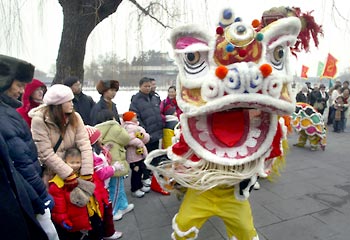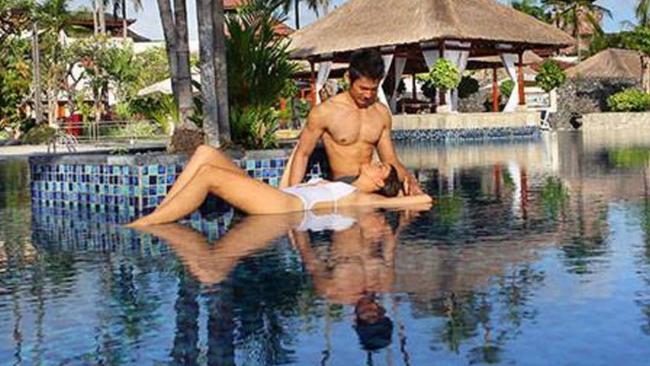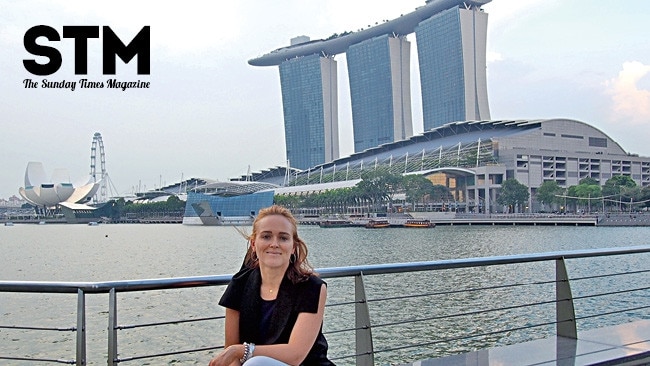48 hours in Beijing
BEIJING is a Chinese banquet of sights and delights but there is an art to getting around this city of 15 million people.

BEIJING is a Chinese banquet of sights and delights, writes Cameron England.
1. Touchdown
Beijing Airport is 27km from the city centre. Taxis from the airport cost about $17 – make sure to get one from the accredited guards just outside the terminal – offers of cheap taxis from freelancers nearby are to be avoided. If you're on a budget, buy a ticket for one of the many shuttle buses into the city for a more reasonable $2.70.
2. Bedding down
The Jade International Youth Hostel is packed with clean single, double and dorm rooms and is a couple of hundred metres from both the Forbidden City and the main shopping drag, Wangfujing Dajie. Accommodation is also available in the traditional Hutong setting while Beijing is fully stocked with its share of five-star hotels for the up-market traveller.
3. Attractions
The gargantuan Forbidden City complex bordering Tiananmen Square is the spiritual and political heart of China, now adorned with a huge portrait of former communist dictator Chairman Mao. Tours taking in this and the numerous other palaces and lakes are affordable, if exhausting. The changing of the guard at Tiananmen is a spectacle both at the crack of dawn and in the evening. Expect to be outnumbered by Chinese sightseers. Tours through the traditional Hutong housing areas, at risk from the rapid pace of development, offer an insight into the Beijing of old. Bicycle tours are a great way to see the city, with dedicated bike lanes in many areas. The Beijing Acrobatics Troupe is spectacular and good value at $17-$25 at the Wan Sheng Theatre.
4. Great Wall
Visiting Beijing without making a side trip to the Great Wall would be criminal. While the fact that it is visible from space was disproved as an urban legend recently, up close it's everything you expect, a colossal monument to a vibrant culture stretching from the coast 6352km west into the Gobi Desert. Badaling, just 70km from Beijing, tends to swarm with tourists. More distant Simatai, in contrast, is a two-to-three-hour hike through 15 watchtowers over about 10km, in parts extremely steep, but affording a more serene and contemplative experience.
5. Night-life
Houhai Lake, just north of the Forbidden City, is a great place to spend a night out, with a couple of hundred bars and restaurants lining the water's edge, many sporting a fusion of Western and Eastern influences, with pool tables and dance music among the more traditional eateries and ice-skating in the winter months. Sanlitun Rd is the more traditional expat hangout. Be sure to get the bar staff to teach you the Chinese dice game, but beware – losing is a mandatory drink.
6. Food
Starfish, frogs, snails, actually anything you can thread on a stick is available from the Donganmen Yeshi night markets just off Wangfujing Dajie. It's a mecca for Chinese and Western tourists alike and at about 90c a stick, a bargain. Restaurants which include a cultural dance show abound and are reasonably priced but, take care, northern Chinese cuisine can be on the spicy side. Street food can be had for a handful of change and is generally very good, but check first for cleanliness. And the Beijing duck, known in Australia as Peking duck, is delectable.
7. Shopping
My advice – get to Beijing with the clothes on your back, then go nuts. Most of the brand-name goods are likely to be knock-offs, but are generally high quality and stocked in Western sizes. The Silk and Pearl Markets are multiple chaotic floors combining traditional goods with technology and clothing. Wangfujing Dajie is the up-market shopping hub where you will likely pay more than at home.
8. Bargaining
Market prices in Beijing can be five to six times what vendors are willing to accept, on the off chance a gullible Western tourist will just shell out the offer price. Pretending to walk away from a potential purchase will usually knock at least another 30 per cent off.
9. Scams
While it may seem benevolent to help someone learn English as they show you around Beijing, as well as a great cultural experience, being left with a $250 bill for a few cups of tea will leave a sour taste in any tourist's mouth. Guidebooks warn of the scam, and the local government is trying to stamp it out. But as a fellow hotel guest found while I was there, they haven't yet succeeded.
10. Culture
Beijing's surrounds are dotted with the tombs of former rulers from various dynasties. The Ming and Eastern Qing tombs are on most tours. However, some tourists can suffer from tomb and temple fatigue after a while. For more recent history, Chairman Mao himself is on show most of the year, and Beijing is dotted with reasonable museums and galleries. Entrepreneurial young artists prowl Wangfujing Dajie inviting foreign tourists to peruse their art, providing an interesting diversion and a chance to pick up an original bargain.
11. Getting around
If you're on a tight budget, the buses in Beijing are well developed, and cost a measly 17c. But with the taxi flagfall a mere $1.70 and another 20c a kilometre, why bother unless you want the full Beijing cultural experience? Few of the drivers speak English, so take a map with Chinese and English street names and keep a stash of your hotel business cards on hand.
12. How to get there
Malaysia Airlines flies from Adelaide to Beijing via Kuala Lumpur, with return airfares priced from $1457, including taxes. For more information, phone Escape Travel on 1300 799 783.



